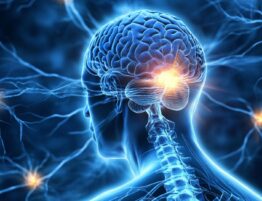Water is the foundation of life and nowhere is this more evident than in the brain. The human brain is made up of about 75% water and relies on proper hydration to function at its best. When hydration levels drop, the consequences can be significant, affecting both brain volume and mental clarity. Chronic dehydration is a condition where the body consistently lacks enough fluid. It doesn’t just make you feel thirsty – it can alter the brain’s structure and impair mental sharpness. This issue is critical for everyone, from students needing focus for exams to older adults aiming to preserve mental health.
In this article, we’ll explore how staying hydrated supports short-term mental performance, how to protect long-term brain health, and why neglecting water intake could have serious consequences.
The Silent Role of Water in Mental Performance
Water is more than a basic need. It’s a vital player in keeping your brain running smoothly. The brain depends on fluid to carry out essential tasks, such as:
- Maintaining cellular function. Fluid ensures brain cells (neurons) communicate effectively, supporting everything from memory to problem-solving.
- Transporting nutrients. It delivers oxygen and glucose to brain cells, fueling your mental energy.
- Regulating temperature. Proper hydration keeps the brain at an optimal temperature, preventing overheating that can slow mental processes.
Even mild dehydration — losing just 1-2% of your body’s fluid — can disrupt these functions. Studies show that this level of dehydration can reduce alertness, impair short-term memory, and make it harder to focus. For example, if you’re dehydrated during a workday, you might struggle to concentrate on tasks, feel irritable, or take longer to complete projects. In contrast, staying hydrated boosts mental performance. It helps you stay productive and sharp in everyday activities. These can include meetings, studying, or managing household tasks.
How Chronic Dehydration Shrinks Brain Volume
When dehydration becomes a long-term issue, the effects go beyond temporary discomfort. Chronic dehydration can lead to measurable changes in the brain’s structure, particularly in the form of reduced brain volume. Research using MRI scans has shown that prolonged fluid deficiency causes the brain to shrink slightly. This happens because the brain loses fluid content and cells compact to compensate. This shrinkage isn’t just a number on a scan — it’s linked to real symptoms that affect daily life.
Common signs of brain atrophy, a structural change marked by reduced brain volume, include:
- Headaches. Shrinking brain tissue increases pressure on surrounding areas, causing frequent or intense pain that disrupts daily activities.
- Brain Fog. Persistent difficulty concentrating, memory lapses, or feeling mentally “off,” which can hinder work, decision-making, or routine tasks.
- Fatigue. The brain expends extra energy to perform basic functions, resulting in feelings of exhaustion or chronic tiredness, even after minimal effort.
These symptoms, which may worsen over time, vary in severity based on the degree of atrophy. Early detection is vital, as they may signal underlying neurological conditions. Seeking medical evaluation can help diagnose the cause and guide interventions to manage or slow progression.
Neuroscience studies suggest that these changes may accumulate over time. This is especially true in people who consistently fail to drink enough fluid. For example, a study found that individuals with habitual low fluid intake showed signs of reduced brain volume compared to those who stayed well-hydrated. The brain can often recover with proper hydration. However, ongoing neglect could make these changes harder to reverse. This emphasizes the need to address chronic dehydration early.
Dehydration’s Effect on Cognitive Clarity and Reaction Time
Dehydration doesn’t just affect how your brain looks. It slows down how it works. The effects of hydration are especially noticeable in cognitive clarity. This is the ability to think clearly and make decisions quickly. When you’re dehydrated, the brain’s communication pathways slow. This leads to delayed processing and reduced mental sharpness. This can manifest as:
- Slower reaction times. Tasks like driving or responding to emails take longer.
- Impaired decision-making. You might second-guess choices or struggle to weigh options.
- Reduced focus. Learning new skills or following complex instructions becomes harder.
Real-life scenarios highlight these impacts. For instance, a dehydrated driver may take longer to react to a sudden stop, increasing the risk of accidents. At work, dehydration could lead to mistakes in calculations or missteps in presentations. Students might find it harder to retain information during lectures. Research supports this. A study showed that mild dehydration reduced performance by up to 20% in tasks with attention and memory. Drinking water regularly can reverse these effects. This can restore cognitive clarity and keep your brain responsive.
Chronic Dehydration and Accelerated Cognitive Decline
Short-term dehydration causes temporary issues. However, chronic dehydration poses a more serious threat. It may contribute to cognitive decline over time. Persistent fluid deficiency stresses the brain. This disrupts the brain’s ability to repair and maintain itself. This is especially concerning for aging populations. It’s because the brain naturally becomes more vulnerable to damage with age.
Studies suggest that long-term dehydration may increase the risk of neurodegenerative conditions, including Alzheimer’s disease or other forms of dementia. For example, dehydration can reduce blood flow to the brain. This starves the brain of oxygen and nutrients needed for healthy aging. This can lead to memory loss, difficulty with problem-solving, and a gradual decline in mental abilities. Older adults are particularly at risk. This is because their thirst signals weaken with age. This makes them more susceptible to falling into a cycle of chronic dehydration.
Is there any good news? Addressing hydration early can make a difference. By prioritizing fluid intake, you can support your brain’s resilience and reduce the risk of mental decline. This is especially important for those with a family history of dementia or those noticing early signs of memory issues.
Hydration and Neuroplasticity – Can the Brain Recover?
The brain is remarkably adaptable. This is due to a process called neuroplasticity. This refers to the brain’s ability to form new connections, adapt to changes, and recover from stress or injury. Proper hydration plays a key role in supporting neuroplasticity. It ensures the brain can continue learning and adapting throughout life.
When you’re dehydrated, neuroplasticity is compromised. The brain struggles to create new neural pathways. This can slow learning and hinder recovery from mental fatigue. However, research offers hope. Rehydration can help restore some mental functions. For example, one study found that participants who increased their fluid intake after chronic dehydration showed improvements in memory and attention within just weeks.
To support neuroplasticity and brain recovery, consider these strategies:
- Drink consistently. Aim for small, regular sips of fluid throughout the day rather than large amounts at once.
- Eat fluid-rich foods. Fruits like watermelon and vegetables like cucumber can boost hydration.
- Monitor your body. Dark urine or frequent thirst are signs you need more fluid.
By prioritizing hydration, you give your brain the tools it needs to stay flexible and resilient. This approach works even after periods of neglect.
Simple Strategies to Stay Hydrated for Better Brain Health
Maintaining hydration doesn’t have to be hard. With a few practical changes, you can protect your brain and enhance cognitive clarity for years to come. Here are actionable tips to incorporate into your daily routine:
- Set a schedule. Drink a glass of fluid first thing in the morning, with meals, and before bed. Use phone reminders if needed.
- Carry a reusable bottle. Keep a bottle with you at work, in the car, or at home to encourage sipping throughout the day.
- Flavor your fluid. Add a slice of lemon, cucumber, or mint to make drinking more enjoyable.
- Track your intake. Apps or simple tally marks on a notebook can help you ensure you’re meeting your daily fluid needs (about 8-10 cups for most adults, depending on activity level).
- Avoid over-reliance on sugary drinks. Sodas and energy drinks can dehydrate you over time. So prioritize water or herbal teas.
- Check your urine color. Pale yellow urine typically indicates good hydration while dark yellow suggests you need more fluid.
Common mistakes to avoid include waiting until you’re thirsty to drink (thirst is a late sign of dehydration) and assuming coffee or alcohol can replace water. By building these habits, you’ll not only improve mental performance, you’ll also support long-term brain health.
Staying hydrated is one of the simplest yet most powerful ways to care for your brain. From preventing chronic dehydration and protecting brain volume to enhancing mental clarity and supporting neuroplasticity, water is a cornerstone of mental well-being. By understanding hydration’s effects on mental performance and taking steps to avoid mental decline, you can keep your brain sharp and resilient at any age. Start small: grab a glass of water now and make hydration a daily priority for a healthier, clearer mind.












I've given up... the stress her office staff has put me through is just not worth it. You can do so much better, please clean house, either change out your office staff, or find a way for them to be more efficient please. You have to do something. This is not how you want to run your practice. It leaves a very bad impression on your business.
Please, leave your review
Write a comment: